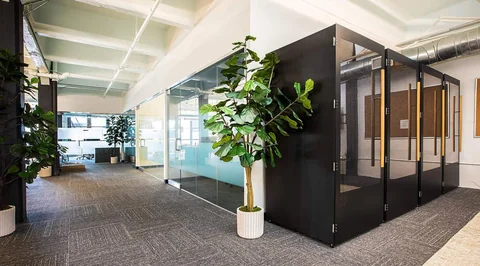
Many startups are finding themselves in a tough situation due to the COVID crisis. And we see many of our early-stage companies cutting their office expenses as a way to reduce their burn rate. What should a startup do if it is in a really tough situation and wants to adjust its office lease?
It’s obvious, but with COVID hitting, lots of companies are not even using their offices. Office space is one of the largest cash burn/expenses for a startup. So a lot of early-stage founders and COOS are trying to figure this out.
Two background points on office leases
Now, a couple of things for a background. Office leases are actually unsecured debt. A company cannot just get out of an office lease. The contract is essentially debt on the company. So executives wanting to change up or get out of their lease need to be really careful on how they handle this.
Secondly, a little bit more background. For a very long time, startup office leases in San Francisco, New York, Austin, other startup hubs have been going up in price for a long time. And so people didn’t always really worry too much about how long their lease duration was because they figured they could always sublease it out. And that was true. Because the market was always going up, subleasing out always was a better deal for someone. So someone would always take that lease. Now, with COVID hitting, prices have plummeted. And so it’s really tough to get out of a lease. So we’ve got four different solutions for you.
So the first solution is you can “play hardball.” We do not generally recommend this. But playing hardball would be, “Hey, Mr or Mrs. Landlord. “I’m just not gonna pay you for a few months,” and see what happens. Now, sometimes people think that’s a good solution. But it’s really not because again, this is unsecured debt on your company. Furthermore, you’ve typically put down a deposit, one to three months or so, or you’ve signed a letter of credit with the bank that the landlord can draw down upon for collateral. So if you stop paying for a few months, the landlord is just going to the deposit or they’re going to draw down your letter of credit.
And I know a lot of startup people have been surprised that letters of credit have been getting drawn down upon. But that’s how it works. That’s what letters of credit do.
The other thing to worry about if you play hardball is that in these leases there’s a lot of penalties and fees that the landlords can rack up on you. They can also just take you to court for some of the like more qualitative but very dangerous terms where you’re causing financial damage to them. So all of a sudden the liability gets really big if you stop paying. So we do not recommend doing that.
How to work with your landlord
Instead, we recommend working with your landlord.
Now, the first one is working with your landlord to find a subletter. This is really tough. You’ve probably already tried doing that. What we are seeing is prices are down 25 to 50% in the big metros. So if you can get a subletter, you’re probably going to be subsidizing them by paying 25 to 50% rent. So you’ve got to figure out if that’s even really worth it for you. But you do get out of that liability if you do sublet it. (We have published new data on startups and rent.)
The next option, which is probably our favorite, is blend and extend. And what that means is you go to the landlord and you say, “Hey, I will sign up for another year on my lease” on the backend under the assumption that the market will get better, the company will get through COVID and office space “will be in more demand.” So you don’t really mind doing that. In exchange, you will get a lower payment for the next year or two. So the landlord wins because they’re extending the lease and you win as a startup because you’re blending the high payment you used to pay with a much lower payment in the near term. And this is the most cashflow-friendly way because you’re really reducing your payments when it matters most.
Now the fourth option is a variation of that. But what you would do is actually go to your landlord and say, “Hey, instead of extending, “I will just buy out the lease.” Now, this is again, landlords, not their favorite thing because they really like having long-term leases. But if you make it worth their while by paying six months to a year worth of payments upfront, you can usually get out of the lease. That gives the property back to the landlord. They’ve got a bunch of cash up front. And then they can try to lease it again. Now, the problem for a startup is the cashflow burden is really huge upfront. An early-stage company would obviously prefer to push those payments out if possible. And all of a sudden you’re paying six months to a year worth of lease payments right away. So it is pretty painful. But if you think there’s no way that you’re ever going to use this lease and there’s no way to get a subletter, and you don’t want to extend it, then doing the buyout is the best option.
There are four options for reducing your startup’s office lease expenses during COVID. None of them are super-easy. But times are tough, and it’s time to take evasive action if the office lease is really hurting your company.








